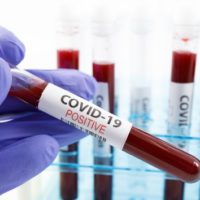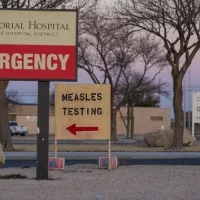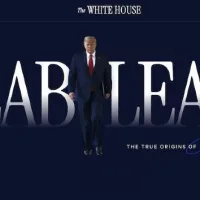
Ovidiu Dugulan/iStockBy PRIYA AMIN, DR. MARK ABDELMALEK and LUCIEN BRUGGEMAN, ABC News
(NEW YORK) — The old saying goes: “There’s strength in numbers.” And now, it turns out numbers may be the greatest defense against the spread of COVID-19.
It’s a concept called herd immunity: Once enough people become immune to the novel coronavirus, it can’t spread easily throughout the population.
Vaccinations are necessary to create that kind of large-scale immunity, as the virus won’t just disappear without a vaccine, according to Dr. Anthony Fauci.
“That is just not going to happen, because it’s such a highly transmissible virus,” Fauci said in his address to a Senate panel last Tuesday. “Even if we get better control over the summer months, it is likely that there will be virus somewhere on this planet that will eventually get back to us.”
Herd immunity doesn’t mean there won’t be any virus transmission, but it does mean that people with immunity function as kinds of roadblocks to stop rapid contagion.
Could the United States reach a point where the novel coronavirus cannot easily spread? As public health officials battle an ever-expanding crisis, epidemiologists suggest there is still a long way to go before reaching herd immunity for COVID-19.
Thanks to vaccinations, herd immunity has been effective at eliminating polio, smallpox and, until recently, measles.
It’s something we’d like to see with COVID-19, sooner rather than later, but how do we get there?
The threshold for achieving herd immunity — the fraction of the population that needs to be immune to a disease to make person-to-person transmission extremely unlikely or even impossible — varies from virus to virus. With measles, for example, that threshold is high: 93% to 95%.
Some have argued it could happen naturally as the virus makes its way through our communities, but without a vaccine to supercharge immunization, infectious disease experts point out that any pursuit of herd immunity through natural infection could come at a tremendous cost. Allowing many people to get sick quickly could cause a spike in infections that could place enormous stress on the healthcare system, and many people would die.
Hopefully, a vaccine for COVID-19 will be available within one to two years, according to Fauci.
“It’s definitely not a long shot,” Fauci said at last week’s Senate hearing. “It’s clearly much more likely than not that somewhere in that time frame, we will get a vaccine for the virus.”
Many have also been wondering: Do people develop some immune protection after they recover from COVID-19? Experts think that may be the case, but nothing is proven. And even if it is true, no one is sure just how long that immunity may last.
Since achieving herd immunity is the goal, you first need to understand how fast the virus infects other people. That basic reproduction rate is what scientists call the “R nought” of the virus. And for the virus that causes COVID-19, that number is somewhere between two and three. That means each person with the novel coronavirus can infect, on average, two or three others.
You can’t change anything about the virus, but people can change things about themselves and their behavior to effectively slow the spread.
When someone becomes immune or stays physically distanced from others, it’s harder for the virus to spread, and the average number of people that the virus can infect is lower. That new number, factoring in how susceptible the population is, is called the effective reproductive number.
The goal is to drive that number down. If the effective reproductive number is greater than one, then the virus can still spread rapidly. The closer the effective reproductive number is to zero, the better.
In a world where no one is immune to COVID-19 and everyone is at risk, the virus can spread like wildfire. But in a world where there is herd immunity — for example, if 75% of people are already immune — that means three-quarters of people exposed to anyone with the virus just won’t get sick. So, even if a few people have the virus, the rest who are immune stop it from spreading.
Epidemiologists use a formula to calculate herd immunity based on the virus’s basic reproduction number: (R0 − 1)/R0.
Based on what experts know about the contagiousness of the novel coronavirus, “the critical threshold for achieving that herd protection for COVID-19 is between 50% and 66%,” Dr. Justin Lessler, an epidemiologist at Johns Hopkins University told ABC News.
That means that somewhere between 150 million and 216 million Americans need to be immune to meaningfully stop the virus from spreading throughout the country. But right now, most experts say the country is probably a long way away from these kinds of numbers.
The great thing about a vaccine is that it can help build a person’s immunity without making him or her sick. So, just like with many other infectious diseases, the show-stopper will be when most people can get a vaccine — once we have one that’s proven to work.
Copyright © 2020, ABC Audio. All rights reserved.













